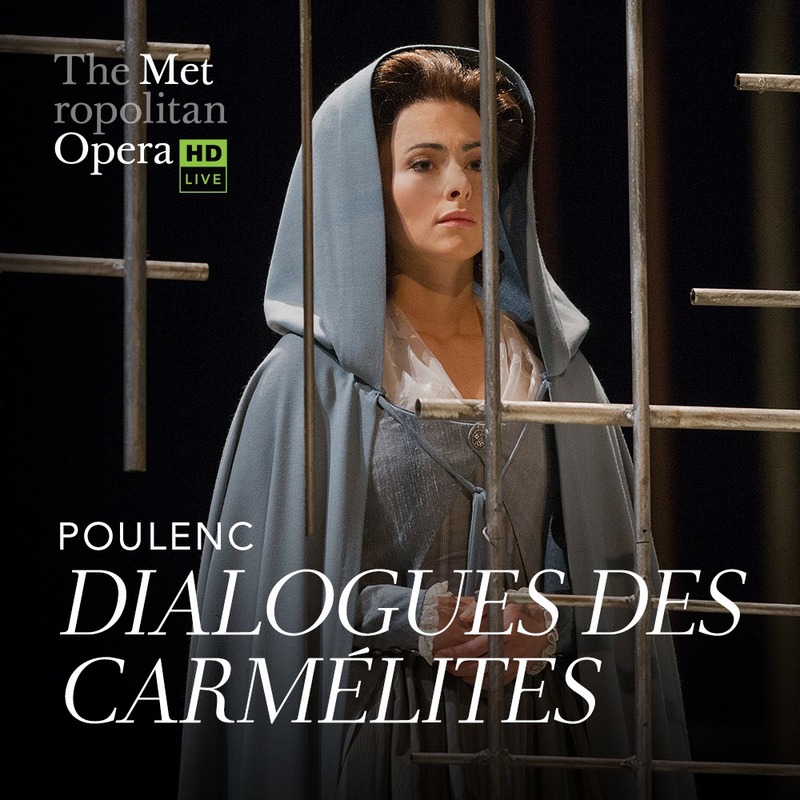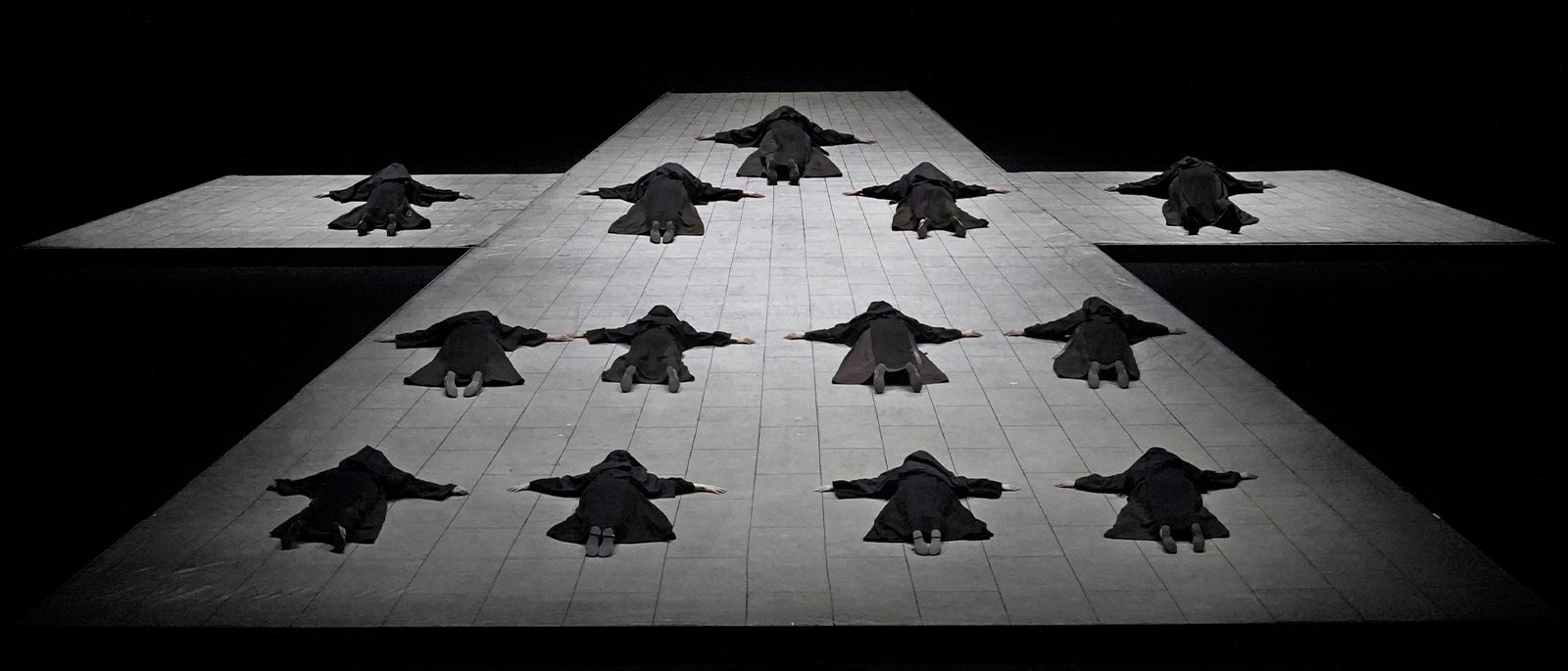Les Dialogues des Carmelites
Francis Poulenc's only serious opera, premiered at the Palais Garnier on January 26, 1957. The US premiere was 9 months later in San Francisco. Poulenc (1899-1963) was one of the group, Les Six, whose main members were composers: Georges Auric, Louis Durey, Arthur Honegger, Darius Milhaud, Germaine Tailleferre, and Poulenc. Others associated with this artistic salon include: Pablo Picasso, Jean Cocteau, Henri Matisse, Joseph Leger, Amedeo Modigliani, Erik Satie, and Serge Diaghilev. Poulenc's devoutly Catholic father managed the Rhône-based family pharmaceuticals business and his mother came from an artistic Parisian family.
Poulenc's early works were non-serious, lighter works, and he had been considered a "farceur". Later in life his works became more serious, notably after the death of a friend in a horrorific auto accident. It was in his later life that his work became more religous. One of his more well-known is the Stabat Mater which was written in memory of a friend, painter Christian Bérard. Work on "Dialogues" began in 1953 and was completed in 1955.
"Les Dialogues des Carmelites" is a very serious opera. It tells the story of the Martyrs of Compiègne, which led to the end of the Reign of Terror and the end of the French Revolution. The story centers on a timid daughter of an aristocratic family, Blanche de le Force. She wants to retreat from the world by entering a convent. She witnesses the death of the prioress who admitted her and hears her other young colleague, Constance, comment that the prioress was given the wrong death, and that perhaps we die for others and not for ourselves. A police officer arrives to inform the order that they must abandon their vows and pledge allegiance to the French state. None agree to this and the new mother superior proposes that they choose martyrdom. They all agree. In the final scene of the opera, the nuns are taken, singing hymns, to the Place de la Nation, Blanche is not among them. In actual history the youngest nun went first and as she ascended the scaffold she sang the Salve Regina. In the scene, the nuns proceed voluntarily, singing the hymn, each voice in turn silenced by the off-stage fall of the guillotine blade. Blanche's friend, Constance, is last. As she stands up, Blanche enters the scene to join her comrades. Hers is the final voice silenced.
The executions took place July 17, 1894. Ten days later Robespierre was beheaded as the Reign of Terror drew to a close. The Martyrs of Compiègne were beatified in 1906, and recognized as saints on Dec 18, 2024 by Pope Francis.
Ballet, Les biches, choreographed by Bronislava Nijinska.
Metropolitan Opera production - May 4, 2019 - 2h 53mins
A stunning version of Poulenc's masterpiece opera, featuring the stars of the Met. Eric Simpson of the New York Classical Review called it, "a riveting, devastating "Carmelites" (see item below). Sung in French with English subtitles.
Pro tip: Wear a long-sleeved shirt, or bring some tissues.



